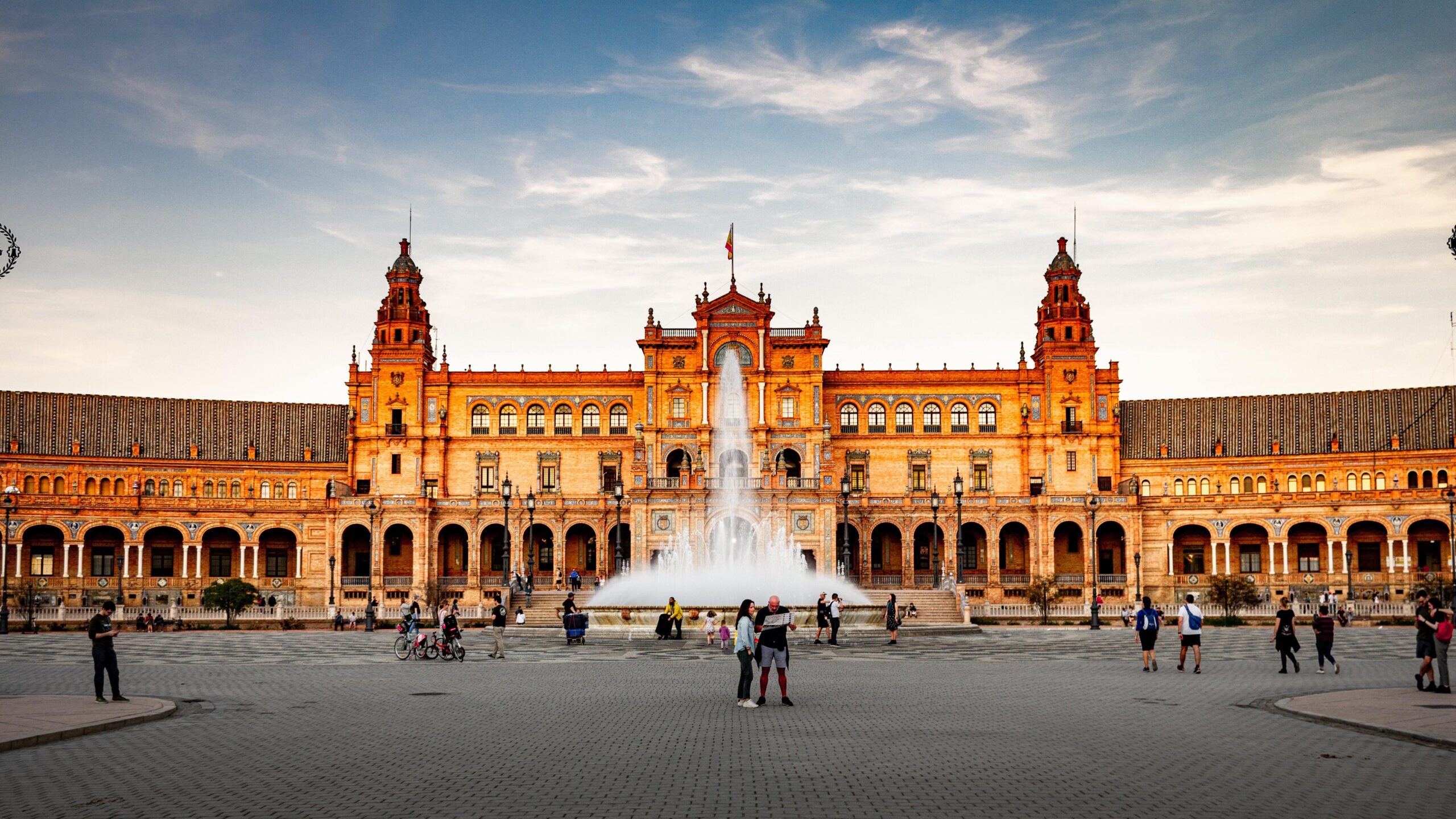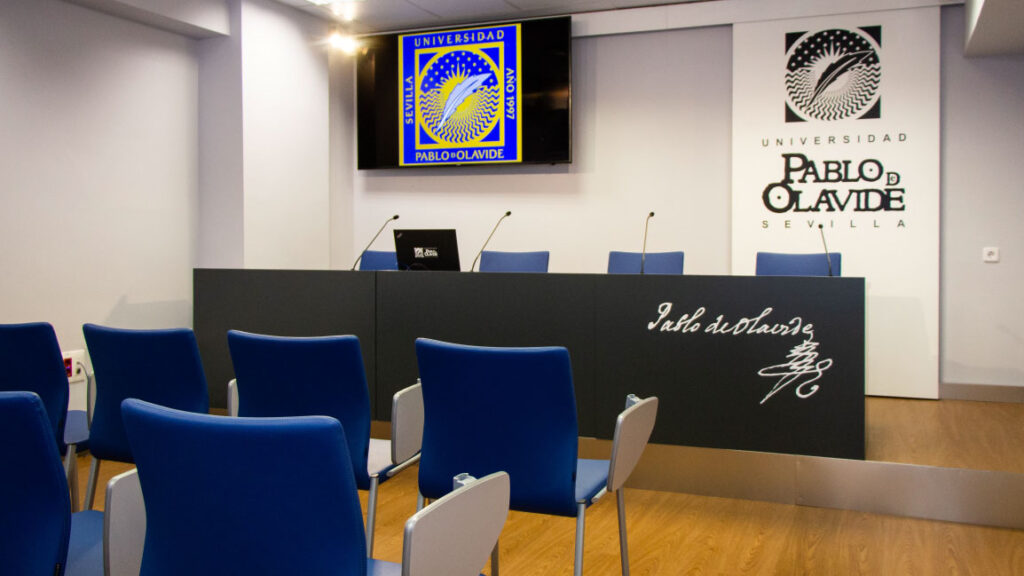Non-globular proteins in the era of Machine Learning
COST Action CA21160
ML4NGP TRAINING SCHOOL
ML4NGP-REFRACT Training School on Computational Tools to Study Non-Globular Proteins
February 13-16, 2024
Carmona, Spain



DESCRIPTION
The COST Action ML4NGP is pleased to announce the 2nd Training School on Computational Tools to Study Non-Globular Proteins. The event is co-organized with the H2020-MSCA-RISE project REFRACT (GA 823886) and will take place at Sede Olavide, in Carmona (Spain) from 13 to 16 February, 2024.
The primary objective of this training school is to offer participants a comprehensive insight into recent advancements in computational resources, along with hands-on training for the study of non-globular proteins, focusing on aspects such as tandem repeat proteins, intrinsically disordered proteins, aggregation and low complexity regions.
The scientific program encompasses both lectures during the morning and practical sessions in the afternoon. Additionally, a social event and dinner will provide networking opportunities and a chance for participants to connect informally.
TARGET AUDIENCE AND REQUIREMENTS
Exclusive for working group members of the COST Action CA21160. Participants will be selected by the organizing committee in order to guarantee gender balance, early career researchers (PhD students and Junior postdocs), and geographic distribution. The Training School is limited to 25 participants.
This Training school is intended for those who are interested in learning different computational advances to study non-globular proteins. Participants must be able to navigate online biological resources but are not expected to have computational or programming skills. Prior knowledge and basic training in Biochemistry, Biology, Bioengineering or related sciences are recommended.
|
|
Application Deadline |
|
ML4NGP WG / REFRACT members |
December 15, 2023 |
Selected participants will be notified by e-mail before December 22, 2023.
Please note that your application does not confirm that you have been selected for the course.
You will be informed before the registration deadline.
Payment will be requested only after confirmation of acceptance. Details for payment will be sent in the confirmation registration e-mail.
- A short motivation statement (max. 500 characters) and CV will be requested in the application form
- COST Action ML4NGP will reimburse travel expenses for a maximum of 25 participants
- Participants should bring their own laptop
- A certificate of attendance will be sent no later then one week after the end of the school
Confirmed trainers
- Damien Devos, Consejo Superior de Investigaciones Científicas (CSIC), Spain
- Antonina Andreeva, EMBL-European Bioinformatics Institute, UK
- Luis Sánchez-Pulido, Consejo Superior de Investigaciones Científicas (CSIC), Spain
- Zsuzsanna Dosztányi, Eötvös Loránd University – ELTE, Hungary
- Nicolas Palopoli, Universidad Nacional de Quilmes, Argentina
- Andrey Kajava, Centre National de la Recherche Scientifique (CNRS), France
- Miguel Andrade, Johannes Gutenberg University, Germany
- Salvador Ventura, Universitat Autonoma de Barcelona, Spain
- Carlos Pintado Grima, Universitat Autonoma de Barcelona, Spain
- Vasilis Promponas, University of Cyprus, Cyprus
- Alexander Monzon, University of Padova, Italy
- Silvio Tosatto, University of Padova, Italy
preliminary PROGRAM
Venue: Sede Olavide en Carmona, C/ Ramón y Cajal, 15. Carmona
February 13, 2024
|
9:00 – 9:30 |
Registration & Welcome desk |
|
9:30 – 10:30 |
Lecture 1 | Overview of the BISMM Suite of Bioinformatics Programs: Why They Were Developed and How They Operate Andrey Kajava |
|
10:30 – 11:00 |
Coffee break |
|
11:00 – 12:00 |
Lecture 2 | Understanding the evolution of protein repeats in post-AlphaFold era Antonina Andreeva |
|
12:00 – 14:00 |
Lunch Break |
|
14:00 – 15:30 |
Practical session 1 Antonina Andreeva |
|
15:30 – 16:00 |
Coffee break |
|
16:00 – 17:30 |
Lecture 3 | Protein sequence conservation and remote homology in Intrinsically Disordered Proteins Luis Sanchez Pulido |
February, 14
|
9:30 – 10:30 |
Lecture 4 | Short tandem repeats in protein sequences Miguel Andrade |
|
10:30 – 11:00 |
Coffee break |
|
11:00 – 12:00 |
Lecture 5 | Low-complexity and Compositional Bias in Protein Sequences: the tools of the trade Vasilis Promponas |
|
12:00 – 14:00 |
Lunch Break |
|
14:00 – 15:30 |
Practical session 3 | Low complexity regions Vasilis Promponas |
|
15:30 – 16:00 |
Coffee break |
|
16:00 – 17:30 |
Practical session 4 | Short Tandem Repeats Miguel Andrade |
FEBRUARY, 15
|
9:30 – 10:30 |
Lecture 6 | Introduction to protein intrinsic disorder Zsuzsanna Dosztányi |
|
10:30 – 11:00 |
Coffee break |
|
11:00 – 12:00 |
Lecture 7 | Short linear motifs mediating protein-protein interactions Nicolas Palopoli |
|
12:00 – 14:00 |
Lunch Break |
|
14:00 – 15:30 |
Practical session 5 | Protein disorder prediction and databases Alexander Monzon |
|
15:30 – 16:00 |
Coffee break |
|
16:00 – 17:30 |
Practical session 6 | Short linear motifs (SLiM) Nicolas Palopoli |
FEBRUARY, 16
|
9:30 – 10:30 |
Lecture 8 | Computational tools to predict protein aggregation and phase separation Salvador Ventura |
|
10:30 – 11:00 |
Coffee break |
|
11:00 – 12:00 |
Lecture 9 | Repeats, membranes, microPlatypus and the Tree of Life Damien Devos |
|
12:00 – 14:00 |
Lunch Break |
|
14:00 – 15:30 |
Practical session 7 | Predictors and databases of protein aggregation Carlos Pintado Grima |
|
15:30 – 16:00 |
Coffee break |
|
16:00 – 17:30 |
Practical session 8 Luis Sanchez-Pulido |
ORGANIZATION
SCIENTIFIC organizing COMMITTEE
Damien Devos (Consejo Superior de Investigaciones Científicas, Spain)
Core Group ML4NGP
Alexander Monzon (Action Chair), Zuzana Bednarikova (Action Vice-Chair), Silvio Tosatto (Grant Holder Scientific Representative), Rita Vilaça (Science Communication Coordinator, WG5 Leader), Pavel Kadeřávek (WG1 leader), Dana Reichmann (WG1 co-leader), Zsuzsanna Dostányi (WG2 leader), Javier Garcia-Pardo (WG2 co-leader), Jovana Kovačević (WG3 leader), Milana Grbic (WG3 co-leader), R. Gonzalo Parra (WG4 leader), Ana Melo (WG4 co-leader), Darius Šulskis (Grant Awarding Coordinator).
CONSORTIA
This event is part of the activities of the COST Action ML4NGP, CA21160, which is supported by COST (European Cooperation in Science and Technology). It is also co-organized with the REFRACT consortium, which has received funding from the European Union’s Horizon 2020 research and innovation programme under grant agreement No 823886.


